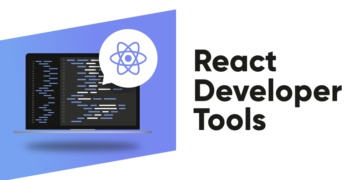Project Management Professional (PMP) is a popular certification program that working professionals select to advance in their careers. Being a globally recognized credential, PMP certification serves as proof of project management skills. Individuals have to enroll themselves in the certification program, complete training, and clear the exam to attain the PMP certification. The training helps with the examination and prepares the applicants for their future jobs. Here are detailed guidelines on PMP Exam Preparation Training
1. PMBOK Guide: Necessary For A Strong Foundation
Individuals who intend to appear for the PMP Certification program must clear the associated examination. Consisting of 180 questions on concepts like people, process, and business environment, the PMP exam requires a thorough understanding and knowledge of essential exam format and type of questions. The PMBOK guide is the ultimate solution that individuals must understand for exam preparation. A complete understanding of various concepts like project management, and PMP processes using the PMBOK guide is necessary to build a strong foundation for the PMP exam.
2. Training Formats
Professionals who have enrolled themselves for the PMP examination must be aware of the various training formats. These are as follows:
- Classroom Training: With individual attention, classroom training can offer personalized learning experience. Moreover, professionals get a fixed schedule for learning thereby offering consistency in learning.
- Online training: With self-paced learning , online training offers flexibility and makes the learning process more efficient. One can learn from anywhere making it a perfect solution for working individuals. They can gain access to training and learning solutions through an online portal which can be accessed from anywhere.
- Virtual Training: Combining classroom and online training, live virtual training helps working professionals interact with teachers during the live learning and training sessions. Remote learning is possible that combines with benefits of classroom and online training.
- Boot Camps: To complete the training in a fast-paced environment, boot camps help individuals to get training and guided in a short span. This helps with quick exam preparation.
Depending on learning flexibility, budget and training requirements, Applicants for the PMP certification exam can select the best training method.
3. Creation Of A Study Plan: A Necessity
Apart from formal training and guidance, individuals should opt for self-study and create a definite plan. Self-study is essential to retain information, grasp new concepts, and make formal training more effective. Moreover, regular practice of important questions, sample papers, and timely revision is essential to clear the PMP examination. One must opt for at least 2-3 months of training and self-study preparation to get a hold of important concepts and clear the exam with flying colors.
4. PMP Instructors And Their Credentials
Individuals must even check the qualifications and credentials of their PMP training instructors. Certified trainers and teachers can offer better training, share better exam insights, and even deliver necessary assistance for exam preparation than non-certified trainers. Moreover, they possess complete knowledge of the PMP exam curriculum, important questions, and exam patterns.
5. Complete Understanding Of Agile And Traditional PMP Frameworks
All the applicants who wish to attain the PMP certification must understand agile and traditional frameworks. Consisting of questions based on agile and traditional project management approaches, the exam tests the candidate on various aspects that the applicants must understand and learn about. Various agile, scrum, and manifesto principles must be learned and understood under the training program.
6. Course Content And Resources
Applicants must be aware of the PMP training course, its various contents, and its overall framework. Moreover, they must make sure the training course/program consists of all the important questions related to the PMP syllabus, mock test papers, and necessary study material. One must even opt for sample question papers, real exam-based test papers, mobile applications, flashcards, and even study groups that can help with the PMP training and exam preparation.
7. Post Training Support
The applicants must even make sure the training service providers deliver after-training support. Access to study groups, one-on-one study, online live class sessions, mentoring, and access to necessary study material and learning content et cetera are certain aspects that applicants must make sure of. Moreover, they must ensure the service provider delivers access to updated learning content as well as necessary information about exam pattern changes, etc.
Conclusion:
A PMP Certification exam requires thorough training and guidance. However, one must be aware of the training requirements and other essential aspects to make the right decisions. From selecting the right training service provider to creation of a well laid study plan, every decision requires thorough decision making and understanding. Therefore, Applicants must keep themselves updated with the new guidelines related to PMP certification training, stay consistent with self-study and service-provided training, and opt for daily mock tests to ensure full-proof learning. Formal training for PMP certification is essential that working professionals must opt for to clear the exam.

























